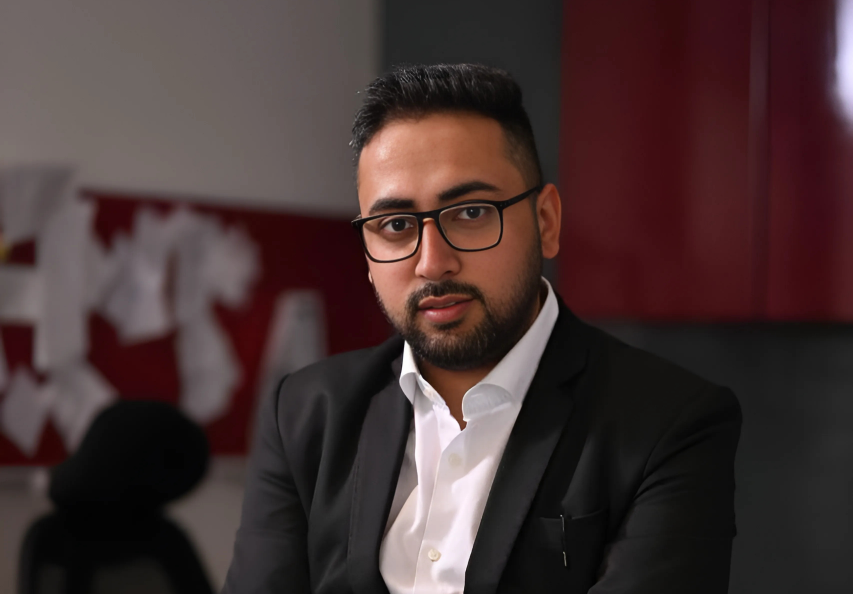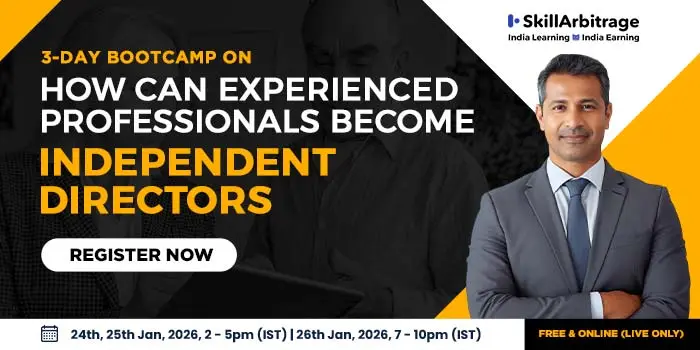This interview has been published by Anshi Mudgal and The SuperLawyer Team
Having over a decade of experience now, what were the initial years of your practice like? What inspired you to choose law as a career, and how did law school help shape the foundation of your professional journey?
It’s been 10 years in this profession, yet the early days feel like just yesterday, when I was practicing in Delhi and learning to navigate the world of black and white. It didn’t take long to realize that this profession is far more about practicality than pure theory. Knowing the law and mastering your case file is essential, but equally important is understanding the judge, not personally, but in terms of their courtroom approach: their patterns, reactions, and preferences. From the very beginning, I developed the habit of sitting in court and observing judges closely. That practice, simple as it may seem, has proven invaluable throughout my journey as an advocate.
I come from a small town in Haryana called Karnal, where I completed my schooling. After that, I pursued my law degree at Amity University, Noida. My legal journey began with a litigation office in New Delhi, where I practiced for almost four years. In 2018, I moved to Chandigarh to start my own practice. As a first-generation lawyer, it was important for me to establish my name in my hometown, where I felt more connected and grounded. It wasn’t easy, there were no set plans, and no one in my family had a legal background. It all started when a cousin suggested corporate law while I was preparing for my 12th boards in 2010. I gave the entrance exams, got selected at Amity, and the rest unfolded from there.
You began your career as an associate, handling a wide range of civil litigation and domestic arbitration matters. How did this early exposure influence your approach to complex disputes, and what key skills proved most valuable in the formative years of your practice?
In the initial years of my practice as an associate, I was fortunate to be exposed to a wide range of civil litigation and domestic arbitration matters. This diversity of work taught me very early on that no two disputes are ever alike. Each case requires a tailored approach in terms of a legal strategy. What shaped me the most was learning how to balance theory with practicality. The law may be uniform, but its application depends on the facts, the forum, and often the perspective of the judge or tribunal. Observing court proceedings, understanding patterns of arguments, and seeing how small details could shift the direction of a case gave me a very grounded view of dispute resolution.
As a first-generation lawyer, what motivated you to establish your independent practice? What vision did you have when you started, and how has it evolved over time?
As a first-generation lawyer, what motivated me most to establish my own practice was the desire to build something independent, driven purely by merit, hard work, and client trust. Starting out, I had no legacy to rely upon and that became my greatest strength. It pushed me to focus on credibility, consistency, and results from the very beginning. My initial vision was quite simple: to create a practice that delivered practical, solution-oriented advice rather than just theoretical legal opinions and dragging each and every client to Court even if it could be settled outside the court. That was when Hans Law Associates was established. Over time, that vision has evolved into building a full-service firm where teamwork, innovation, and long-term client relationships are at the core.
You have represented clients before the Punjab and Haryana High Court, consumer forums, RERA, and various tribunals. How has this diverse litigation experience enhanced your understanding of dispute resolution across different legal platforms?
Representing clients before the Punjab & Haryana High Court, consumer forums, RERA, and various tribunals has given me a broad perspective on how dispute resolution functions across different platforms. Each forum has its own procedure, pace, and expectations, for instance, the High Court demands sharp legal reasoning and precedent-based arguments, while consumer forums and RERA focus more on quick, pragmatic relief to aggrieved parties. Ultimately, this cross-forum exposure has made me a more versatile advocate, able to approach disputes not just from a legal standpoint, but from a strategic, client-centric perspective.
You have handled matters before the Haryana Real Estate Appellate Tribunal, the Haryana Real Estate Regulatory Authority, and several other tribunals. What unique challenges have you encountered in this specialized field, and how do you navigate them effectively?
Handling matters before the HREAT, HRERA, Pkl, and other tribunals has been both challenging and rewarding. Real estate law, especially under the RERA framework, is indeed a booming area of practice. With rapid urbanization and increasing consumer awareness, disputes in this sector are growing both in volume and complexity. The unique challenges I’ve faced include balancing the interests of buyers and developers, staying updated on any recent precedents as it is a very new law and most importantly, ensuring enforcement of orders. While RERA was designed to be consumer-friendly, practical hurdles often arise in execution. I’ve found that navigating this space requires not only sound legal knowledge but also adaptability and persistence. This blend of legal precision and pragmatic follow-through has allowed me to add real value to clients in this fast-growing field.
As a mediator at the Punjab and Haryana High Court, how do you see ADR evolving in India? In your experience, what advantages does mediation or arbitration offer compared to traditional litigation?
As a mediator at the Punjab and Haryana High Court, I have witnessed how Alternative Dispute Resolution (ADR) is rapidly evolving in India. With rising pendency in courts, ADR is no longer an alternative but an essential tool for timely and effective justice.
The recent “Mediation for the Nation” drive initiated by the Hon’ble Supreme Court reflects this growing recognition. By encouraging parties to resolve disputes amicably, the judiciary has underlined mediation’s role in reducing litigation, promoting harmony, and ensuring quicker resolutions. I myself have seen a rise in settlements after the said initiative.
In my experience, mediation preserves relationships and empowers parties to design their own solutions, while arbitration offers efficiency, confidentiality, and subject-matter expertise. Both provide speed, practicality, and satisfaction compared to traditional litigation that may take years. With institutional support and initiatives like Mediation for the Nation, ADR in India is poised to become a truly transformative mechanism for access to justice.
You have drafted agreements for a variety of clients, including music and production companies as well as professionals like psychologists. What key challenges do you see in the entertainment sector, and how can these be addressed proactively through careful contract drafting?
Drafting agreements in the entertainment sector brings its own set of unique challenges. Unlike traditional contracts, these often deal with creative rights, intellectual property, royalties, confidentiality, and moral rights, all of which can be highly sensitive and prone to disputes if not defined clearly. One of the biggest challenges is the ambiguity around ownership of content, whether it lies with the creator, the producer, or the platform. Another is the lack of awareness among artists and professionals about the long-term implications of exclusivity clauses, revenue-sharing models, and termination rights. Proactive solutions lie in clear, precise, and balanced drafting.
What advice would you give students aspiring to enter the legal profession, and what resources would you recommend to help them stay ahead in a constantly evolving field?
My advice to students aspiring to enter the legal profession is to focus on fundamentals and be patient enough to adapt. Courtroom practice teaches you quickly that law is not just about theory but about how you apply it in real, practical situations. Developing habits like observing proceedings, reading judgments daily, and sharpening communication skills goes a long way. It’s a never ending learning process. I see a lot of individuals backing out from the profession as it may not satisfy you monetarily but once you understand the responsibilities that come with it, I am sure we are ready to go a long way. I’d also recommend building a mentor network and learning from senior advocates and peers. In a constantly evolving field, the ability to keep learning, unlearning, and relearning is the best resource you can carry with you.
Balancing a demanding legal career with personal life can be challenging. How do you manage stress, maintain focus during high-stakes matters, and create balance between your professional and personal responsibilities?
Balancing a demanding legal career with personal life is indeed challenging, but I’ve learned that discipline and perspective makes the difference. During high-stakes matters, I manage stress by preparing thoroughly as confidence in your case reduces anxiety. I also practice detachment after court hours, giving time to family, fitness, and spirituality, which keeps me grounded. For me, balance isn’t about strict separation but about ensuring that both professional duties and personal responsibilities get the attention they deserve. This balance not only helps me stay focused but also makes me more effective in my practice.
Get in touch with Shubhnit Hans –




